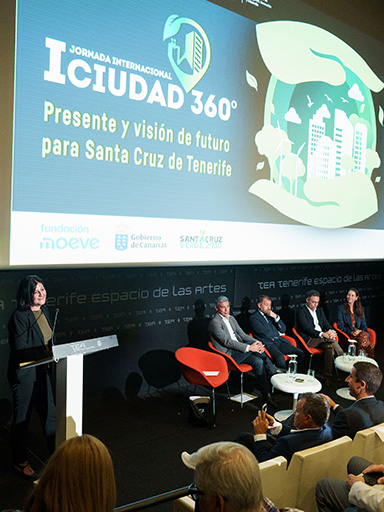- With the support of Fundación Moeve, the capital of Tenerife reached an important milestone by hosting a strategic forum that united global urban planning leaders, local authorities and community members. Together, they shared a common goal: to create a more livable, connected city, equipped to meet the challenges of the future
The event began early with a warm welcome from the mayor of Santa Cruz de Tenerife, José Manuel Bermúdez, who emphasized the significance of the gathering as a step forward in the city's journey toward greater resilience: "Santa Cruz can't be a city anchored in the past." Our commitment is for a modern, inclusive and green city, that places the people at the center of its public policies.
On his part, the first deputy mayor and vice president of the Santa Cruz Sustainable Foundation, Carlos Tarife, underscored that "we must be critical and this forum not only allows us to share knowledge with top-level experts, but also reinforces our commitment to a resilient urban model, where sustainability is not an abstract concept, but a tangible reality for our neighbors."

